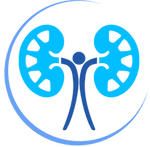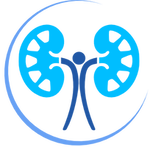|
Dialysis requires a drastic change in a patient’s lifestyle in order to be successful and healthy. This can be a change in schedule, altering or creating new habits, and diet changes. It’s a daunting task. Below are some of the changes dialysis patients may go through and ways to combat the discomfort that may come from them.
Changes in diet Challenging Change: One of the biggest challenges dialysis patients face can be their change in diet. Dialysis patients have to be mindful of what and how much they eat. Generally, dialysis patients have to monitor: calcium, phosphorus, sodium, protein, and fluid intake on a daily basis. Because of the intensity of the treatment, it is important to follow this diet and continue taking in vital nutrients. Learning the Lifestyle: Have an open, honest conversation about your diet with your dietitian to discover where you can make improvements. Additionally, you can use the resources listed below to find recipes or get ideas that are delicious and within your budget and/or dietary requirements. You can find more information about eating healthy on a budget in previous posts here. Renal Support Network National Kidney Foundation The Mayo Clinic Changes in Schedule Challenging Change: Depending on your dialysis modality, a schedule change is required for patients in order to accommodate the treatment schedule. This can be dialyzing at night, going to a clinic three (3) days a week, or taking time out of each day for the patient and a care partner to do the treatment. This can be incredibly frustrating and hard to adjust to, as well as creating an unwanted sense of dependency on others. Learning the Lifestyle: There are other modalities available. Ask your care team if there is a schedule or modality that may better suit your lifestyle. You may also be able to look into remote work. Additionally, use this time to pick up a new habit, like reading, studying a new subject, watching new shows or movies, planning for the week ahead (like grocery lists, reviewing your schedule, and creating to-do lists) or even taking virtual tours around museums and galleries. Creating New Habits Challenging Change: Creating new habits and sticking with them is usually the hardest part of making a change or setting a new goal. Dialysis patients often have to incorporate new medications, taking their blood pressure and weight regularly, and tracking foods or fluid. If you forget or make a mistake, don’t be discouraged! Pick yourself back up and try again. Learning the Lifestyle: Habit Trackers and checklists are wonderful tools to help keep us on track. They are a way to visualize steps and habits, reminding us of the goals we set. Additionally, automatic reminders can be set to alert us on cellphones and other devices. Try using these tools in conjunction with habits that you already have to “habit stack” and ensure that these will stick. Ultimately, you are at the center of your care. We want to help you make the choices that empower you to live and thrive while on dialysis. If you have any questions or concerns, please reach out to your care team for additional information. *Please do not implement any significant changes without first consulting with your physician and care team.* Labs are the most vital piece of information needed to determine a patient’s kidney function. There are a number of tests that nephrologists might order to assist in finding the root cause of a problem. Let’s look at 5 of the most common tests, what’s included, and why they are so important.
Metabolic Panels: Metabolic panels are meant to test the blood for essential electrolytes and other values that indicate how well the body is functioning. Some of the most important values for nephrologists within these orders are:
Urine Tests: There are a few urine tests that a nephrologist might order to examine a number of factors that contribute to kidney function. These can include:
Uric Acid: Uric acid is a resulting waste product from the breakdown of purine-rich foods. A build-up of uric acid in the body can lead to gout, a potentially painful inflammatory response in the joints. Your kidneys work to filter out the uric acid through the urine. If the kidneys do not filter it out, high uric acid in kidneys can manifest as high blood pressure, worsening kidney function, or cause uric acid kidney stones. While these lists are not all-inclusive, they can give you an idea of the range of values we look for. Remember to get your labs done no less than one (1) week prior to your scheduled appointment for the most current results. As always, contact your care team if you have any questions or concerns! |
About The BeanThe Bean is a blog on a mission to share valuable information in the world of Nephrology. We believe in empowering through education and The Bean is a great place to find resources and information on topics related to high blood pressure, kidney disease, dialysis, and topics that enhance the kidney minded lifestyle. Enjoy and be sure to subscribe! Archives
July 2024
Categories |
Contact Us |
Careers |
Connect With Us |
|
13241 Bartram Park Blvd., Suite 1001
Jacksonville, FL 32258 Open Map Tel: (904) 260-9898 Fax: (904) 260-9891 |
Interested in joining our team? Jacksonville Nephrology is dedicated to compassionate patient care through teaching and giving our team the tools needed to go above and beyond. Learn more about current openings. Learn More
|



